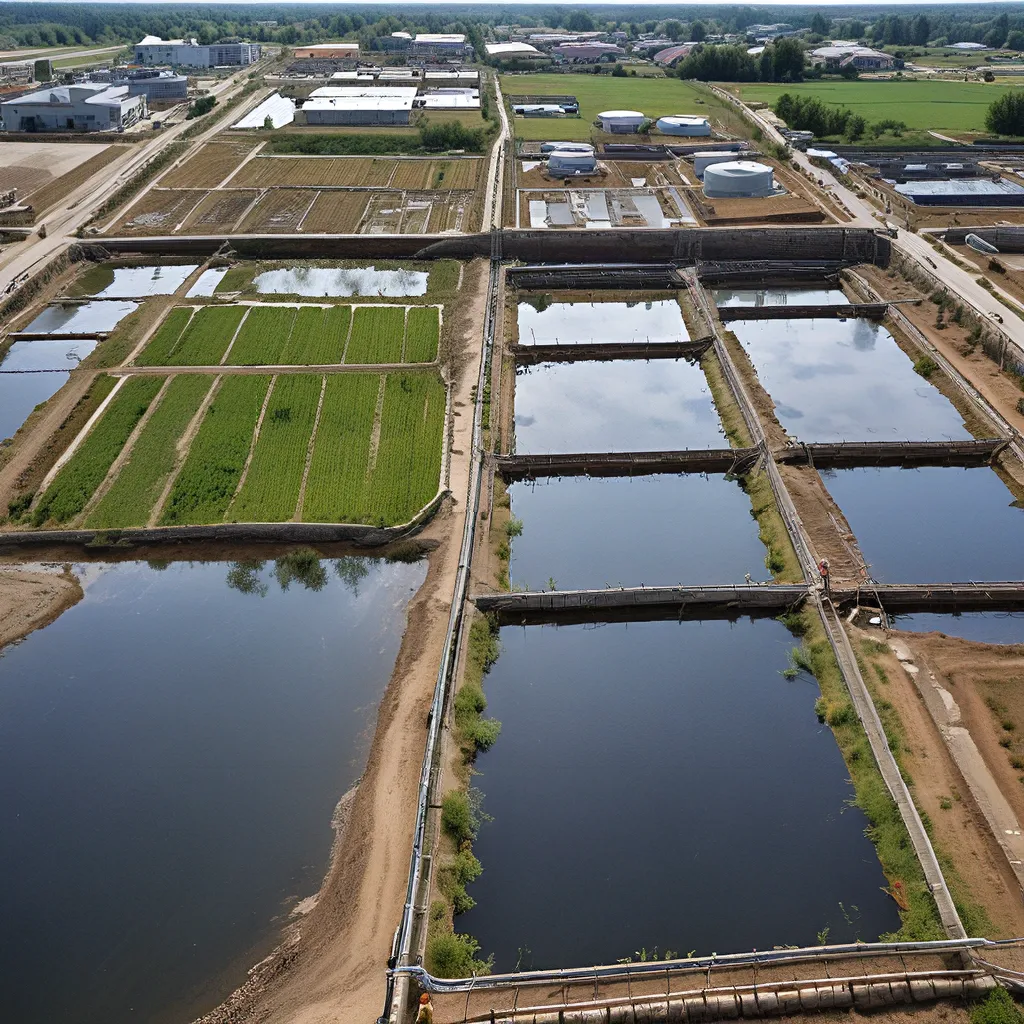
As I sit here sipping my morning coffee, I can’t help but ponder the intricate web of systems that keep our cities running. It’s easy to take for granted the infrastructure that provides us with the basic necessities of life – water, energy, and food. But have you ever considered how these elements are all interconnected, and how the way we manage our wastewater can have far-reaching implications for the sustainability of our urban environments?
The Water-Energy-Food Nexus
It’s a fascinating concept, this idea of the water-energy-food nexus. Essentially, it’s the recognition that these three essential components of modern life are deeply intertwined, and that decisions made in one area can have significant impacts on the others. For example, the production of food requires large amounts of water and energy. Likewise, the treatment and distribution of water is an energy-intensive process. And the generation of energy, whether from fossil fuels or renewable sources, also relies on water for things like cooling and hydropower.
But it’s not just a one-way street – the interdependencies go both ways. Wastewater treatment, in particular, plays a critical role in this nexus. By properly managing and treating our wastewater, we can not only protect our water resources and the environment, but also recover valuable resources like energy and nutrients that can be used to support food production and other urban systems.
The Importance of Holistic Urban Planning
This is where holistic urban planning comes into play. Rather than viewing these systems in isolation, we need to start thinking about them as a interconnected whole, where decisions made in one area have far-reaching consequences for the others. And wastewater treatment is a prime example of where this kind of integrated approach can make a real difference.
Imagine a city that takes a comprehensive, systemic approach to managing its water, energy, and food resources. Instead of simply treating wastewater as a waste product to be disposed of, this city recognizes it as a valuable resource that can be harnessed to support other urban systems.
Through advanced wastewater treatment technologies, they’re able to recover energy in the form of biogas that can be used to power homes and businesses. They’re also able to extract and recycle nutrients like nitrogen and phosphorus, which can then be used as fertilizer to support local urban agriculture initiatives.
And the benefits don’t stop there. By integrating these systems, the city is able to reduce its overall environmental footprint, conserve precious water resources, and increase the resilience and self-sufficiency of its food and energy systems. It’s a virtuous cycle that can have profound implications for the long-term sustainability of our urban areas.
Innovations in Wastewater Treatment
Of course, achieving this level of integration and sustainability doesn’t happen overnight. It requires a concerted effort on the part of urban planners, policymakers, and the wastewater treatment industry to develop and implement innovative solutions.
Fortunately, there are exciting developments happening in the world of wastewater treatment that are paving the way for this kind of holistic approach. Anaerobic digestion, for example, is a process that uses microorganisms to break down organic matter in wastewater, producing biogas that can be used to generate electricity or heat.
Recent research has shown that by optimizing the design and operation of anaerobic digesters, it’s possible to maximize the recovery of energy and nutrients from wastewater, making the process more efficient and cost-effective.
Another promising avenue is the use of membrane bioreactors (MBRs). These advanced treatment systems combine biological treatment with physical filtration, allowing for higher quality effluent that can be safely reused for irrigation, industrial processes, or even potable water supply. Researchers have found that MBRs can also be integrated with other technologies like constructed wetlands to create hybrid systems that are even more effective and sustainable.
But the innovations don’t stop there. Thermal hydrolysis, for example, is a process that pretreatment sludge before anaerobic digestion, improving the efficiency of biogas production. And electrochemical oxidation is a cutting-edge technique that can remove contaminants and recover resources from wastewater in a highly energy-efficient manner.
Overcoming Challenges and Fostering Collaboration
Of course, implementing these kinds of integrated, holistic approaches to wastewater treatment and urban planning is not without its challenges. There are technical, financial, and regulatory hurdles to overcome, and it often requires cross-sector collaboration and innovative partnerships to make it happen.
Research has shown that successful implementation of these systems often depends on factors like political will, stakeholder engagement, and the availability of funding and incentives. It’s a complex, multi-faceted challenge that requires a systemic, coordinated effort from a wide range of actors.
But the potential benefits are so compelling that I believe it’s a challenge worth taking on. By integrating our water, energy, and food systems through innovative wastewater treatment and holistic urban planning, we have the opportunity to create more sustainable, resilient, and livable cities – cities that are better equipped to meet the growing demands of our rapidly urbanizing world.
So, let’s not just treat wastewater as a problem to be solved, but as a valuable resource that can transform the way we think about and design our cities. Who knows, maybe one day we’ll be able to power our homes, grow our food, and keep our water clean all from the same integrated system. It’s an exciting prospect, and one that I’m eager to explore further.
If you’re interested in learning more about how Alpha Wastewater Services can help your city or municipality implement these kinds of holistic, integrated solutions, I’d be more than happy to chat. After all, the future of our urban environments is something we all have a stake in.